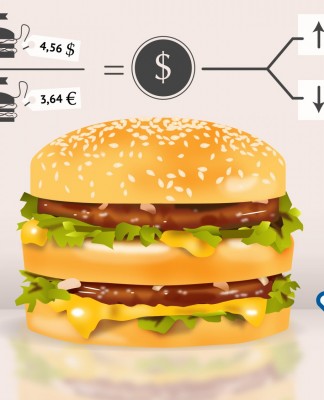 Richard Cayne Meyer explains that it has been a solid first quarter for equity markets after a strong 2013, remarkably the resilience of US equity markets has been particularly impressive given uncertainty over the crisis in Ukraine and weak U.S. growth.
Richard Cayne Meyer explains that it has been a solid first quarter for equity markets after a strong 2013, remarkably the resilience of US equity markets has been particularly impressive given uncertainty over the crisis in Ukraine and weak U.S. growth.
It was striking how resilient equity markets proved to be and how contained volatility stayed during this period.
Equity market volatility is being anchored at low levels by confidence in the positive structural outlook for the U.S. economy. When implied volatility (VIX) falls below 20, we have a favorable environment that allows valuations to expand explains Richard Cayne at Meyer in Bangkok Thailand.
Lower volatility was a pre-requisite for the re-rating in markets we saw in 2013, and it is currently well below 20. While many investors got used to elevated volatility through 2008-2012, it can stay low for a sustained period, much like it did in the 1990s, so investors should be wary of only looking at the recent past.
In terms of what might trigger volatility, the interest rate cycle has become the key focus. U.S. Fed chair Janet Yellen recently let slip at a press conference the phrase “six months” in response to how soon the interest rate cycle could start after tapering is completed.
While there was a small spike in volatility and equities fell on the news, there was no reaction from U.S. 10-year treasuries, indicating the lack of concern among bond investors about inflation risk.
Richard Cayne Meyer add that he believes the US will lead international markets higher.In the US, the news is only going to get better. It seems we are at an inflection point in the U.S. economy, and the market may not be fully recognizing how rapidly the economy is strengthening.
The data is improving across the board, whether it is loans data, manufacturing PMIs, services PMIs, or consumer confidence data.The speed of the improvement in the budget deficit is remarkable. Since 2009, the fiscal deficit has shrunk to around $600bn from $1.5trn. It is not improbablethat President Obama will finish his term with a fiscal surplus.
Valuations and Earnings Can Go Higher
Richard Cayne at Meyer comments that equity markets are no longer cheap, but nor are they expensive. In the U.S. market, we have a slightly unusual situation in earnings expectations at present.
Usually, we start the year with high and unrealistic earnings forecasts which have to be revised down. The opposite is the case this year, and we are likely to have a strong earnings season versus subdued expectations.
Beyond that, it is prudent to consider the standard counterargument to the buy case for the U.S., which has lately become commonplace. This argument points out the U.S. is on a P/E of 16 times, yet corporate profitability is at record highs.
If we cyclically adjust for peak profits, then the P/E is 22 times. Given we are approaching an interest rate tightening cycle, the bears say this makes the U.S. market a sell.
Richard Cayne at Meyer comments that profit margins may well be at record highs, but may move higher. The distribution of profits between capital and labor in the U.S. is going through a fundamental shift.
There are a number of reasons why profit margins can stay high, such as the globalization of labor forces, less organization of labor, technological change, and the ability of markets to press companies to focus on profit margins in a way that just did not happen 30 years ago.
Overall, the outlook for corporate earnings remains favorable.
Richard Cayne Meyer Asset Management Ltd – Buy on the Dips
The U.S. market is going to break out strongly on the upside from its current period of consolidation. With compressed yields on U.S. and euro credit, equities will look attractive versus credit as earnings come through.
The danger is U.S. equities have a too-strong rather than a too-weak year, given the positive outlook for both liquidity and earnings.
It is evident some investors have been left a little traumatized by the bear market in equities and are still relatively fearful.
It is believed by some that we are in the middle of a bull market and, in a bull market, you buy the dips.
In this light, if we get a mid-cycle correction based on the expected onset of the interest rate tightening cycle in 2015, this would be a buying opportunity, and, the S&P 500 could move to 2,000-2,300 from its current level of 1,800.
Richard Cayne Meyer born in Montreal, Quebec Canada resides in Bangkok Thailand and runs the Meyer Group of Companies www.meyerjapan.com. Prior to which he was residing in Tokyo Japan for over 15 years and is currently CEO of Asia Wealth Group Holdings Ltd a London, UK Stock Exchange listed Financial Holdings Company. Richard Cayne has been involved in the wealth management space in Tokyo Japan and has assisted many High Net worth Japanese families create innovative international tax and wealth management planning solutions. https://www.isdx.com/Asia Wealth Group.















